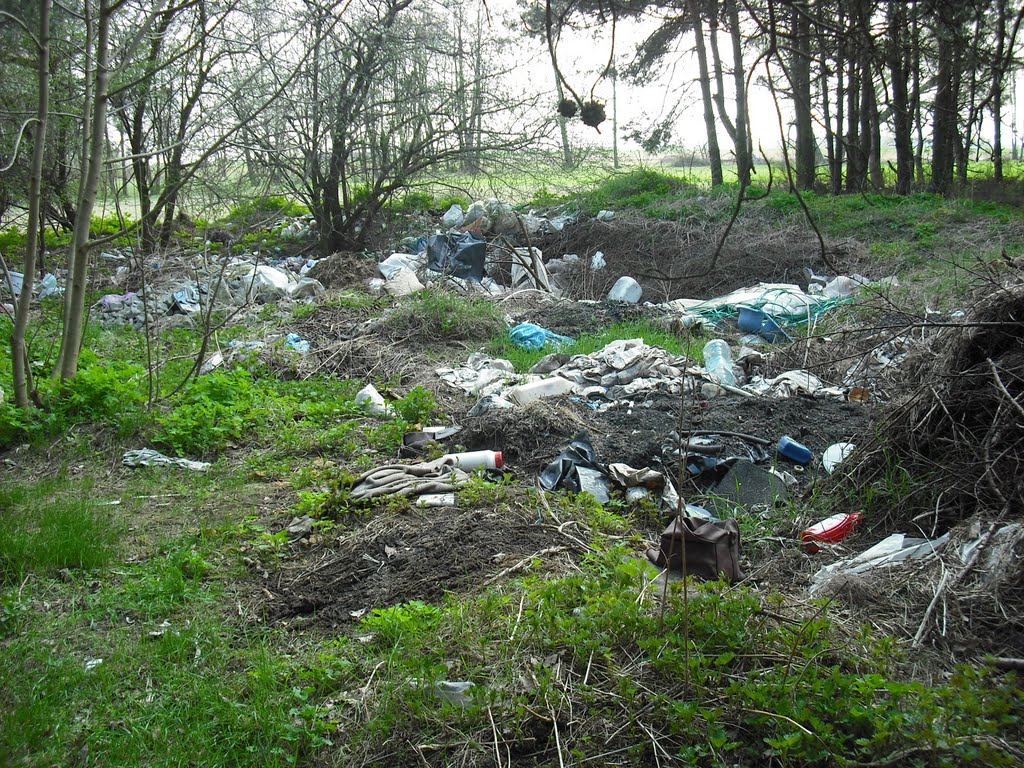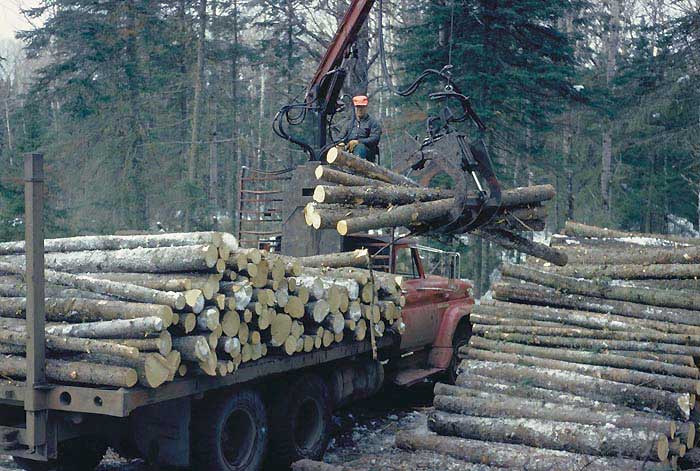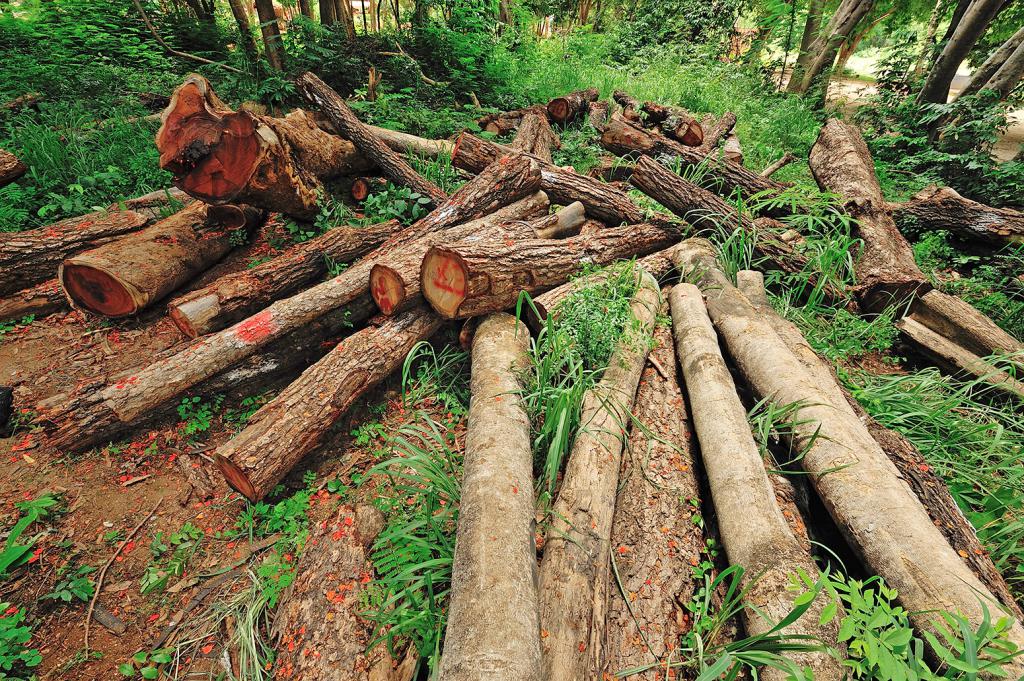Forest is of high value for the state and for the population. This is evidenced by an impressive block of regulatory acts establishing liability for violations of forest legislation. Various illegal encroachments on forest stands are severely suppressed by the state. The consequences of illegal actions in the field of forestry threaten violators with serious troubles.
The article provides a review of the regulatory legal framework on this issue, describes the types of liability resulting from violations of forest laws. The articles of the Administrative and Criminal Codes, which are most often used in judicial practice, are also given.
Legal Review
The main document determining the position of the state on the issue of forestry is the Forest Code of the Russian Federation.
The Code enshrines the general principles of forestry management, establishes a regulatory framework for conducting inspections on the use of forest sites, and stipulates principles for bringing to account those responsible.
Specific types of violations of forest legislation that entail administrative penalties are laid down in the Code of Administrative Offenses of the Russian Federation.
The Criminal Code of the Russian Federation regulates the consequences for improper treatment of the forest under criminal law.
The Civil Code of the Russian Federation stipulates the occurrence of civil liability for violation of forestry.
Federal Law No. 294-FZ contains the legal basis for organizing inspections of legal entities and individual entrepreneurs.
Forest Code of the Russian Federation
In the LC of the Russian Federation on the issue under consideration, Chapter 12 should be singled out on measures to protect forests, and Chapter 13 establishing inevitable punishment for unlawful acts in the forest.
The LC of the Russian Federation has established that at the level of the federation and regions forest authorities are authorized bodies. If necessary, it can be carried out by state institutions created by such bodies.
Forest supervision may only be carried out by authorized officials. Each of them must have an official ID with them.
The employees protecting the forest are given quite large powers by law. For example, the inspector has the right to carry service weapons, to detain, seize the means of committing an offense, and even motor vehicles.
Also, representatives of forestry supervision have the right to bring those responsible to administrative responsibility for violation of forest legislation. Courts deal with such cases.
The violations committed by the inspector are recorded in the act on violation of forest legislation. The content of the violation, the subject who committed it, the exact time of the commission must be indicated in the document.
After drawing up the act in some cases, the inspector issues an order to eliminate violations of forest legislation. The document should describe in detail the unfulfilled provisions of the law, measures to eliminate the violation and their terms.
The employee who issued such an order is obliged to clearly monitor its implementation by the indicated date. If a satisfactory answer to the order has not been received, the culprit shall be held liable in accordance with paragraph 1 of Article 19.5 of the Code of Administrative Offenses of the Russian Federation and will probably be fined.

Particular attention is given in the chapter to forest fire surveillance. A fire followed by a fire can develop into a natural disaster.In order to prevent fires in the forest, especially in the summer, special control measures are provided for foresters, which are limited to patrolling forest areas.
Another measure aimed at protecting Russian forests is the maintenance of a register of dishonest tenants of forest plots. It is already almost impossible for a person on this list to obtain rights to use the forest.
In chapter 13 of the LC of the Russian Federation, 3 main principles are clearly identified in the issue of liability for violations of the code.

Firstly, the perpetrator must be responsible to the state for his actions. Based on the circumstances of the case, he is prosecuted under the Code of Administrative Offenses, Criminal Code and other types of liability.
Secondly, materials procured in the forest, bypassing the law, must be confiscated. This applies not only to trees, but also to other resources (illegal extraction of moss, etc.).
Thirdly, the culprit is obliged to compensate the damage done to nature. The amount and nature of damages are determined by the state.
Civil consequences
Civil liability for violations of forest legislation is based on an agreement between the state or municipality transferring the forest site and the entity receiving the forest. There is no option to avoid the execution of the contract when using the site. The forest plot is acquired as a property under an agreement of sale, is leased. Not prohibited by law and sublease in compliance with the list of formalities.
Civil liability for non-compliance with forest laws arises from the moment the user violates the forest clauses of the agreement. In order to bring an unscrupulous party to this type of responsibility, the state is obliged to apply to the court with a statement of claim. The judicial authority makes a decision on bringing the perpetrator to justice or release from it.
The laws of the Russian Federation stipulate a number of cases in which the lessee or the owner of the forest site risks immediately losing all rights to the forest. Instant termination of leases and contracts for the acquisition of forest plots occurs for the following reasons:
- violation of the forest use regulations and development plans;
- failure to comply with the law regarding the protection of a forest site from fires;
- ignoring the mandatory requirements for the protection of a forest plot;
- connivance in matters of pollution and littering of forests;
- failure to fulfill obligations to ensure reproduction of the forest site;
- use of property with significant, repeated offenses, non-payment of rent.
Administrative responsibility
This type of legal liability for violations of forest law requires the violator to experience certain hardships. Such liability is established in accordance with the Code of Administrative Offenses of the Russian Federation. Examples of penalties include fines for violation of forest legislation, disqualification, suspension of activity. The peculiarity of this type of punishment is that the representative of the state agency that committed the violation may also be subjected to punishment. Decisions on the assignment of responsibility for offenses in the field of forest relations are made by the judges when considering the case.

Consider the articles of the Code of Administrative Offenses of the Russian Federation, most often applied to violators in the territory of our country.
| Norm of law | Offense | Penalties (citizens, officials, legal entities) |
| Art. 7.9 Code of Administrative Offenses | Arbitrary occupation of the forest site or its improper use without permission | 20-50 thousand rubles 50-100 thousand rubles 200-300 thousand rubles |
| Art. 7.10 Administrative Code | Arbitrary transfer of a forest plot or arbitrary exchange of forest plots | 500-1000 rub. 1 thousand rubles-2 thousand rubles. 10 thousand rubles-20 thousand rubles. |
| Art. 8.12 Administrative Code | Misuse of forest sites near water bodies | 3-5 thousand rubles 40-50 thousand rubles 200-300 thousand rubles or temporary ban on activities up to 90 days |
| Art. 8.24 Code of Administrative Offenses | Illegal granting of rights to a forest site (exclusively officials) | 20-30 thousand rubles |
| h. 1 tbsp. 8.25 CAO | Illegal tree harvesting | 1-3 thousand rubles 10-30 thousand rubles 50-100 thousand rubles |
| h. 2 tbsp. 8.25 CAO | Violation of the rules of deforestation | 800-2000 rub. 5-10 thousand rubles 40-80 thousand rubles |
| part 3 of article 8.25 CAO | Violation of the rules for the extraction of resin, medicinal herbs | 200-500 rub. 500-1000 rub. 5-10 thousand rubles |
| Part 4 of Article 8.25 of the Code of Administrative Offenses | Violations of forest use agreements | 800-2000 rub. 5-10 thousand rubles 40-80 thousand rubles |
| part 1 of article 8.26 Administrative Code | Unauthorized haying and grazing in the forest | 200-500 rub. 500-1000 rub. 5-10 thousand rubles |
| Part 2, Art. 8.26 Administrative Code | Arbitrary moss harvesting, spoilage | 500-1000 rub. 1-2 thousand rubles 10-20 thousand rubles |
| Part 3 of Article 8.26 of the Code of Administrative Offenses | Apiaries in inappropriate places | 500-1000 rub. 1-2 thousand rubles 10-20 thousand rubles |
| Art. 8.27 Administrative Code | Failure to comply with forest reproduction conditions (only officials and legal entities) | 5-10 thousand rubles 200-300 thousand rubles |
| part 1 of article 8.28 Administrative Code | Unauthorized felling and digging of trees | 3-4 thousand rubles 20-40 thousand rubles 200-300 thousand rubles |
| Part 2, Art. 8.28 Administrative Code | Unauthorized felling of trees and their digging out using machinery | 4-5 thousand rubles 40-50 thousand rubles 300-500 thousand rubles |
| part 3 of article 8.28 Administrative Code | Purchase, transportation, storage of unauthorized wood | 5 thousand rubles 50 thousand rubles 400-700 thousand rubles |
| Art. 8.29 Code of Administrative Offenses | Destruction of anthills, burrows and nests | 300-500 rub. |
| Art. 8.31 Code of Administrative Offenses | Failure to comply with sanitary safety requirements while in the forest | 500-1000 rub. 1-2 thousand rubles 10-20 thousand rubles |
| part 1 of article 8.32 Administrative Code | Failure to comply with fire safety requirements in the forest | 1-3 thousand rubles 10-20 thousand rubles 50-200 thousand rubles. |
| Part 2, Art. 8.32 Administrative Code | Set firewood, forest litter | 3-4 thousand rubles 15-25 thousand rubles 150-250 thousand rubles |
| part 3 of article 8.32 Administrative Code | Violation of fire safety rules in the forest | 5 thousand rubles 50 thousand rubles 500-1000 thousand rubles |
| Art. 8.35 Code of Administrative Offenses | Extermination of rare animals and plants | 2-5 thousand rubles 15-25 thousand rubles 500-1000 thousand rubles |
Analyzing the composition of the administrative offense and administrative penalties, we can conclude that they are related in severity. The greater the consequences, the greater the punishment. In some cases, fines against legal entities reach 1 million rubles.

Criminal liability
For violation of forest legislation, considered as a crime, the citizen who committed it is involved in the norms of the Criminal Code of the Russian Federation. Criminal punishments are the most significant in the entire legal system of Russia. The most widespread of them are fines, imprisonment and forced labor measures.
In the Criminal Code of the Russian Federation there are only 3 articles establishing liability for violations of forest legislation: 260, 261 and 262. Before proceeding to their consideration, it is worth identifying the general conditions for bringing to punishment in this area.
General principles of criminal liability
Firstly, criminal liability is assigned solely by a court sentence, and nothing else. The procedure for attracting such a punishment is regulated by the PEC of the Russian Federation, it is very strict and does not tolerate even slight deviations. As a rule, criminal cases are examined by the most experienced magistrates.
The session of the judicial authority to consider the case of the appointment of a criminal offense against the person who committed the criminal offense shall be heard no earlier than three and no later than fourteen days from the day the judicial authority received the materials. A verdict issued in the name of the state shall be appealed against within ten days from the day it is proclaimed. If the parties have not appealed the verdict, it shall enter into legal force.
Secondly, criminal punishment is always directed at a specific person. It cannot be imposed directly on a legal entity. Consequences may arise in relation to the director, employee of the company.
Thirdly, prosecution for violations of forest legislation applies only to a citizen who has reached the age of sixteen years and older. This condition is mandatory for foreclosure. Citizens younger than this age are not liable for violations of forest legislation, according to the Criminal Code of the Russian Federation.
An important condition is the initiation of proceedings. Only investigative bodies are entitled to do this. Forest supervision officials can only draw up an act of violation and report to the investigation about the criminal act. The investigation should decide on the initiation of a criminal case.Further events can develop in three scenarios: the initiation of a case, the refusal to initiate a case, or a transfer under jurisdiction.
A common feature of all three articles is that they include the concept of significant, major and especially major damage. This framework is established by the Government of the Russian Federation. Significant damage is considered damage, in total, exceeding five thousand rubles. To classify the act as major damage, an amount of ten times more is required. A very large damage is considered an amount in excess of one and a half hundred thousand rubles. The total amount of damage inflicted significantly affects the punishment provided for the perpetrator.

Also clarifying signs of criminal acts aggravating responsibility are the commission of a criminal act by a group of people (possibly by prior arrangement) and the commission of a crime through abuse of authority. These signs also increase the punishment.
The maximum impact measure is represented by a restriction of freedom for the period specified in the sentence. Arrest in most cases is also accompanied by a fine. For violation of forest legislation, such types of liability as corrective, forced and compulsory work are also provided.
After the main points are agreed, you can move on. Consider the articles establishing legal liability for violations of forest legislation in the framework of the Criminal Code of the Russian Federation.

Article 260 of the Criminal Code
The punishment for unauthorized cutting of forest trees is determined by Article 260 of the Criminal Code of the Russian Federation. The norm includes three parts that differ only in qualifying terms. The objective side of the criminal act in all three parts is expressed by one and the same act - unauthorized cutting and damage of trees and bushes. The criminal act must be committed with intent. A person who has committed such a crime runs the risk of parting with freedom for up to six years and losing the opportunity to be appointed to individual posts.
It is noted that criminal acts classified under this article are the most common among all unlawful acts in the field of forest legislation and pose a serious danger to society. Citizens rarely realize that when used improperly, forest resources are quickly depleted and do not see anything illegal in their actions. However, forests are not in vain called the lungs of the planet - the main source of oxygen on Earth.
Article 261 of the Criminal Code
The following provision of the Criminal Code, determining liability for violations of forest legislation, is considered to be Art. 261. In this case, the criminal act is to exterminate or inflict damage on the trees, often through inaccurate bonfire. The norm consists of four parts, differing from each other by the presence of intent (deprived of intent, intentionally) and the total amount of damage caused (signs of major damage).
The maximum liability for violations of the forest law established by this article is up to 10 years in prison and a fine of up to 300 thousand. In order to get the maximum punishment, it is necessary to commit arson of forest plantations, which will result in heavy damage. An alternative to serving a prison term by decision of a judge may be a fine of up to 3 million rubles.
Article 262 of the Criminal Code
This norm completes the list of positions of the Criminal Code entailing criminal penalties for criminal acts in the field of forestry. This article protects natural territories and objects of great importance to the state. We are talking about nature reserves and natural monuments. National parks are also protected by law. Crime is qualified by this norm only when it has caused significant damage.
The punishment for a criminal act specified in Section 262 is less than in previous cases.The offender is fined up to 200 thousand rubles or sentenced to occupational therapy up to two years.
Disclaimer
Criminal liability cannot be avoided. The only exception to which the criminal should rely is the declaration of amnesty or pardon. Theoretically, criminal liability can be avoided, but only if the medical commission concludes that the person who committed the crime is incompetent.

The totality of legislative norms establishing liability for violation of laws in the field of forestry makes us think about the advisability of committing such a crime. However, thousands of such offenses are registered annually in Russia, which casts doubt on either the sanity of a person or the severity of punishments for such acts.
